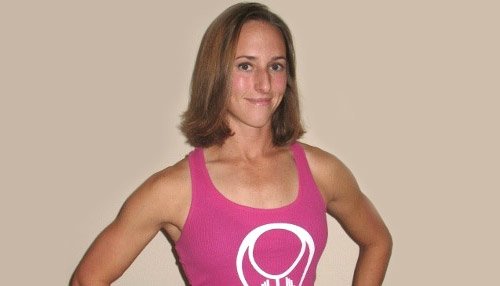
Why You Should Ditch The Scale In The New Year!
Many of us measure progress in our fitness transformations with measuring tape, scales, and calipers. But if those numbers induce stress instead of motivation, then it's time to find a better way!
The concept of making a resolution to lose weight and get fit is a great way to start the year. What could be healthier than making a promise to move more and eat better? The execution of this resolution, however, doesn't always go as planned. In fact, the vast majority of people who make New Year's resolutions don't follow through.1
In my opinion, part of the reason people struggle to maintain their weight-loss resolutions is because they start off with the mindset that numbers—like weight and body fat percentage—are the only ways to measure success. This mindset can lead to an exhausting, all-or-nothing approach that makes weight loss a never-ending battle rather than a positive process.
So this year, I challenge you to put down the calipers and put away the scale for 60 days. There are better ways to achieve your goals and measure success. I'll show you how.
Numbers Can Lie
Sometimes, the number on the scale doesn't actually reflect the healthy changes you're experiencing. So, if you're trying to get to a specific number, you may ignore some excellent markers of progress that are actually more important than your relationship with gravity.

Let me give you an example: After training hard and eating well for a few months, you really start to like the results you've achieved. You've developed some great muscle definition, your clothes fit great, and you really like how you look. Most importantly, you feel more energetic and you're really proud of yourself for sticking to a plan and making healthy choices.
Because things are going so well, you expect to be close to that target weight goal, so you step on the scale. To your surprise, it's higher than you expected! Your weight is actually 10 pounds away from your original goal.
Some may see that number and move on, enjoying the progress and what the mirror is telling them. Others, however, will feel deflated and no longer proud of the steps they've taken. Despite looking and feeling great and making tremendous progress, all some people can think about is how much further they still have to go to reach a magic number.
Your happiness and self-worth should not be dependent on reaching a number, especially when that number doesn't have any concrete significance. How did you come up with your goal weight, anyway? Did you just choose the weight you were in high school?

If you're not sure why you want the scale to show you a particular number, then it may be better for you to focus instead on enjoying every single day of building a strong, healthy, and functional body.
Leave the Scale, Take the Progress
Although it might be difficult, you need to let go of the thought that your weight means anything. The number on the scale does not always signify fitness, and your body fat percentage does not always indicate health.
If you love how you look when your body fat is at 19 percent, why stress about getting down to 15? If you've been chasing numbers for a long time, there's a good chance you may actually like the results you achieve at a higher weight or body fat percentage than you expect.
What really matters is that you like how you look and feel, not how much skin is enfolded in a caliper. It's also important that you work toward a physique that you can maintain.
If you're constantly dieting for that goal body fat percentage, you might feel so discouraged and frustrated that you wind up just another depressing New Year's resolution statistic.
If numbers cause you anxiety and stress, then stop using them. Instead, pay attention to the mirror, how your clothes fit, your energy level, and how you feel every day. Go after the lifestyle you want. Be proud of the progress you make each day.

Commit to fitness by acting consistently. Concentrate on what you doeach day, not how you will look in the future. By making action, not measurement, the most important part of your transformation, you'll find better physical and mental health. All those great aesthetic benefits will just be frosting on the cake!
References
- Norcross, J. C., Mrykalo, M. S., & Blagys, M. D. (2002). Auld lang Syne: Success predictors, change processes, and self?reported outcomes of New Year's resolvers and nonresolvers. Journal of Clinical Psychology, 58(4), 397-405.

